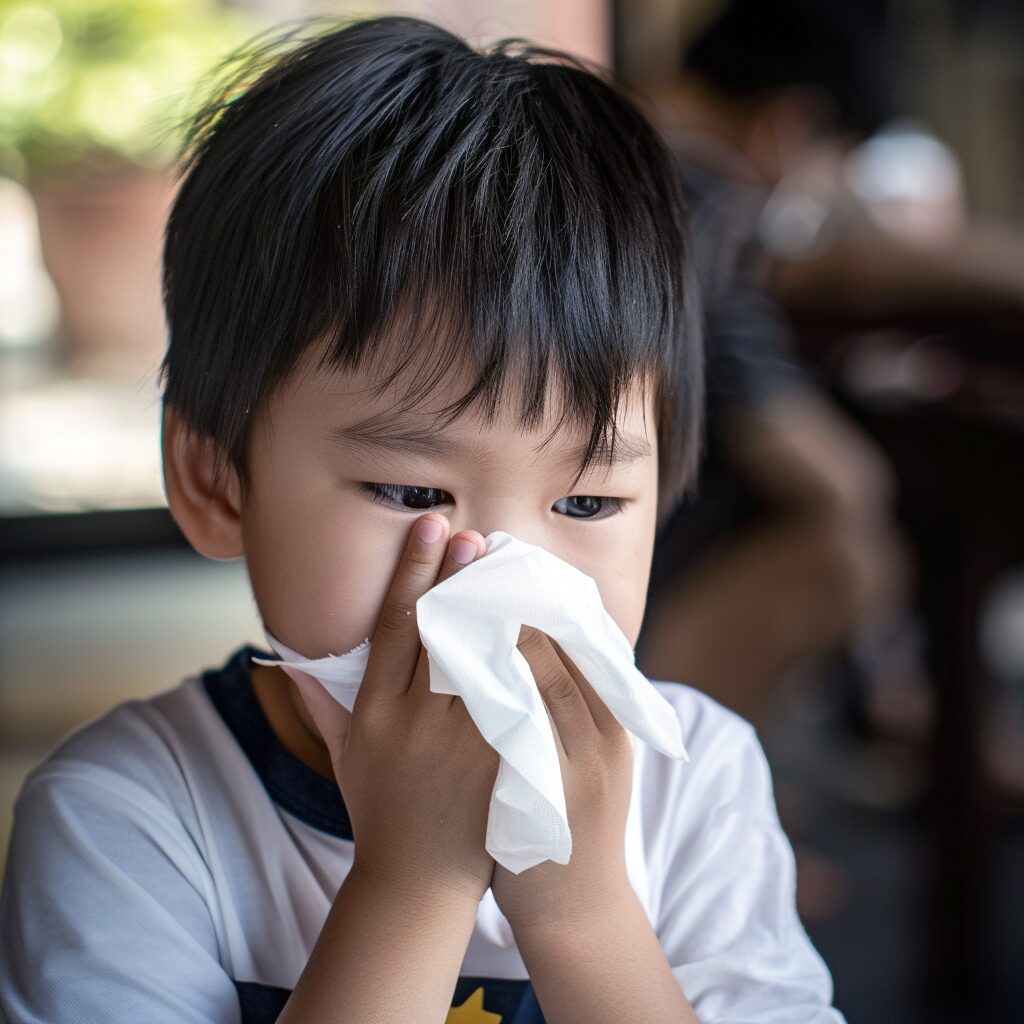
Have you considered how the flu might affect your child? Influenza, more commonly known as the flu, is a highly contagious viral infection that can have serious consequences, particularly for children, older adults, and those with chronic health conditions. Getting the flu shot is a simple and effective way to protect your child, yourself, and your whole family. Let’s explore why this quick and easy step should be on your health checklist and how it can make a meaningful difference in your family’s daily life.
- Understanding Influenza and Its Impact on Families
- Why Influenza Vaccination is Essential for School-aged Children
- Why It’s Important for the Whole Family to Get Vaccinated
- Common Myths and Concerns About the Influenza Vaccine
- When to Get the Influenza Vaccine
- What to Expect After Vaccination
- Making the Experience Comfortable for Your Child
- Protect Your Family’s Health: Make the Flu Shot a Priority
Understanding Influenza and Its Impact on Families
The flu is often mistaken for the common cold, but it can be far more severe. While they may share symptoms like cough, fever, and a runny nose, colds are usually mild and resolve on their own. On the other hand, flu symptoms can hit fast, linger longer, and be far more intense, often leading to serious complications like pneumonia, bronchitis, or even hospitalization. Children are especially prone to catching the flu, and it can have severe health impacts, even on those who are otherwise healthy. This is why getting the flu vaccine annually is such an essential part of preventive care for your family’s health and well-being.
Why Influenza Vaccination is Essential for School-aged Children
So, why make the flu shot an annual family tradition? Here’s why it matters:
High Exposure Risk
Schools are perfect breeding grounds for germs. Enclosed classrooms, shared bathrooms, and crowded canteens make it easy for the flu to spread quickly. If your child participates in sports, the close contact and shared equipment can also increase their exposure. Getting the flu shot acts like an invisible shield, reducing the risk of catching and spreading the virus.
Preventing Severe Illness
While anyone can get the flu, children are more likely to experience severe symptoms or complications. Even if your child catches the flu after being vaccinated, the vaccine can help
make symptoms milder and speed up recovery, reducing the likelihood of needing medical intervention.
Keeping Up with School and Activities
A week spent at home sick can set back your child’s studies, disrupt their extracurricular activities, and impact their social life. Getting a flu shot significantly reduces the chances of
missing school and fun activities, helping them stay healthy, active, and engaged. While vaccination is vital to preventing influenza, natural approaches like a balanced diet, proper sleep, and regular exercise can also strengthen your child’s immune system.
Why It’s Important for the Whole Family to Get Vaccinated
It’s not just your child who needs the flu vaccine; parents, siblings, and even grandparents should roll up their sleeves as well. When the whole family is vaccinated, you create a “cocoon” of protection around those who may be more vulnerable, such as infants, older adults, or anyone with health conditions that weaken their immune systems. Getting vaccinated is not just about keeping your household healthy; it is also about reducing the spread of the virus within the larger community. Prioritizing health together as a family sets a strong example for your children, making vaccination as routine as brushing their teeth or staying active.
Common Myths and Concerns About the Influenza Vaccine

Here are some myths and misconceptions about influenza vaccination that may cause hesitation.
“The Flu Vaccine Can Give You the Flu.”
This is a common concern among parents, but it’s a myth. The flu vaccine is made from inactivated (dead) viruses or weakened live viruses, which means it cannot cause the flu. Some people may experience mild side effects like a sore arm or slight fever, but these are typically minor and temporary.
“My Child is Healthy, So They Don’t Need the Flu Vaccine.”
Even healthy children are at risk of contracting and spreading the flu. Vaccination not only protects your child but also those around them. Moreover, the flu can lead to severe complications in otherwise healthy individuals, so prevention is key.
“The Flu Shot Isn’t Effective.”
While no vaccine is 100% foolproof, the flu vaccine greatly reduces the risk of catching the flu. If infection does occur, it lessens the severity of symptoms. Since the vaccine is designed to target the strains most likely to spread each season, it remains an effective way to stay protected.
When to Get the Influenza Vaccine
In Singapore, flu season typically peaks from May to July and again from November to February. To stay ahead of the virus, it's best to vaccinate before these periods. Since the flu vaccine is effective for about a year, making it an annual routine is important to maintain immunity.
What to Expect After Vaccination
Worried about how your child will handle the flu shot? Don’t be. The flu vaccine is generally well-tolerated, with the most common side effect being mild soreness at the injection site. Some children may feel slightly tired, experience muscle aches, or develop a mild fever for a day or two. These symptoms are short-lived and much less disruptive than the flu itself. In very rare cases, a severe allergic reaction may occur, so it's important to monitor your child after vaccination and seek medical attention if necessary. If you have any concerns, talk to your healthcare provider, who can address any specific needs or considerations based on your child’s health history.
Making the Experience Comfortable for Your Child

Getting a shot can feel daunting for kids, but with the right approach, it doesn’t have to be. Start by talking to your child ahead of time, explaining why the flu shot is important in a simple and reassuring way. A positive conversation can help ease any nerves or anxiety they may have. Bring along a favorite book, music, or device to keep them entertained and relaxed during the appointment. Afterward, reinforce the experience with a fun treat or activity to help your child associate vaccination with something positive.
Protect Your Family’s Health: Make the Flu Shot a Priority
Influenza isn’t just a seasonal inconvenience; it can disrupt your child’s routine, affect your family’s health, and lead to missed school and work days. By making flu vaccination a priority for both your child and yourself, you take a crucial step toward keeping your family safe and healthy all year long. Remember, getting vaccinated goes beyond individual protection, as it is about building a healthier community for everyone. Take action today to protect your child, your family, and those around you.
